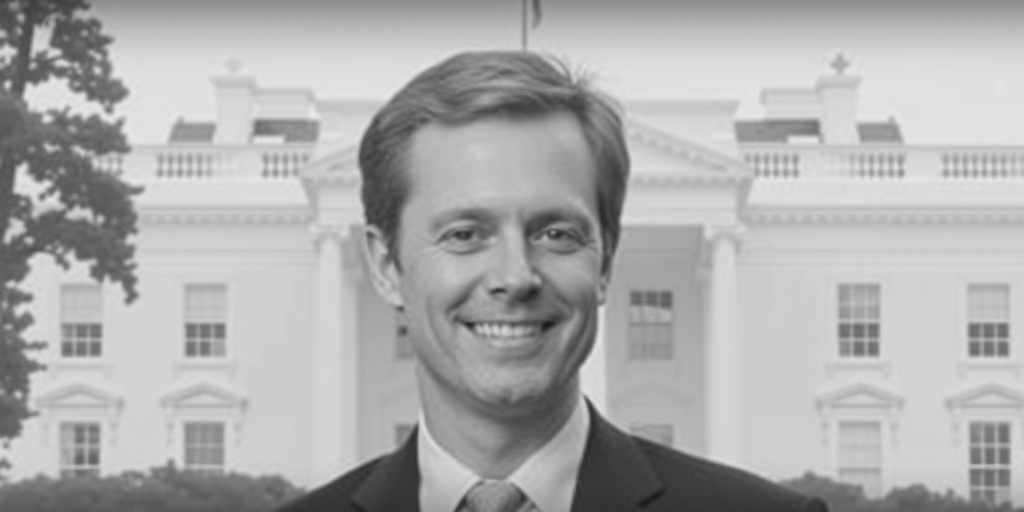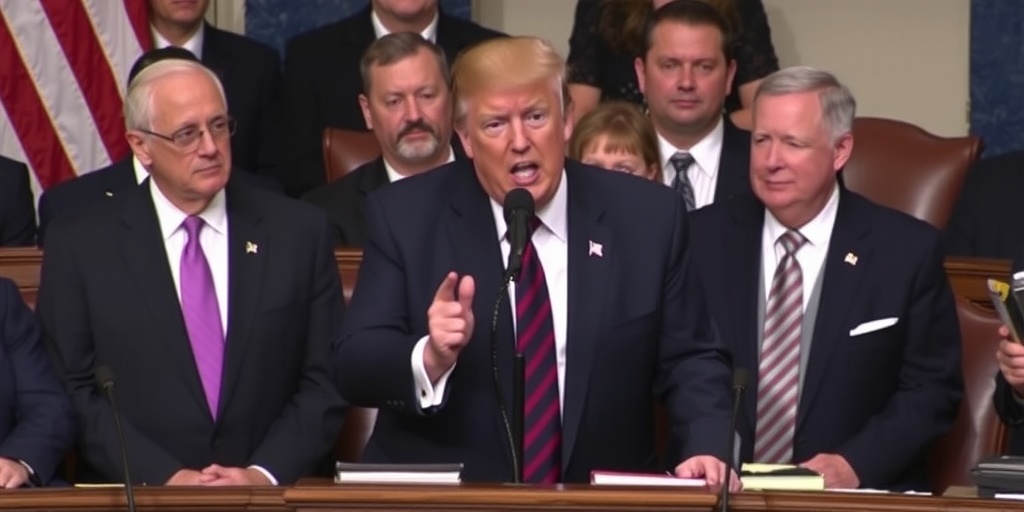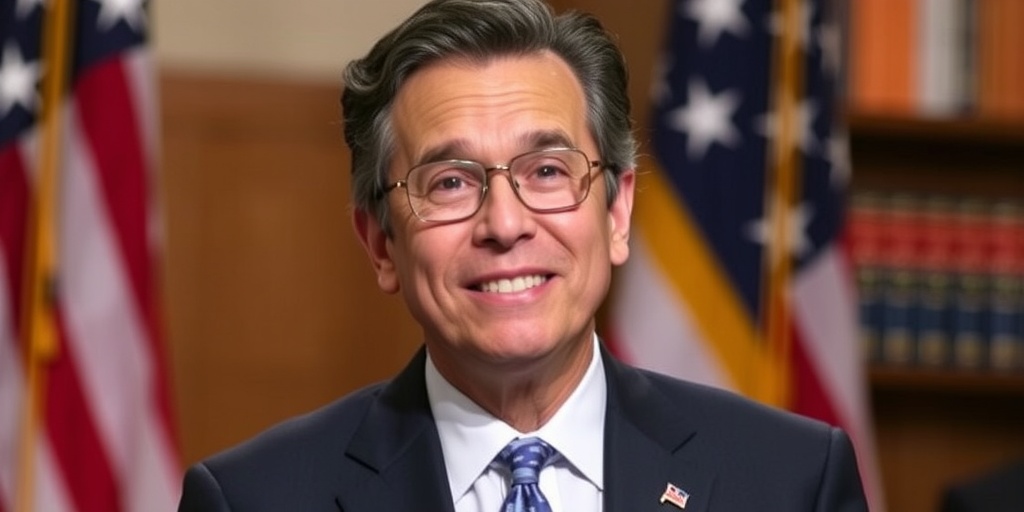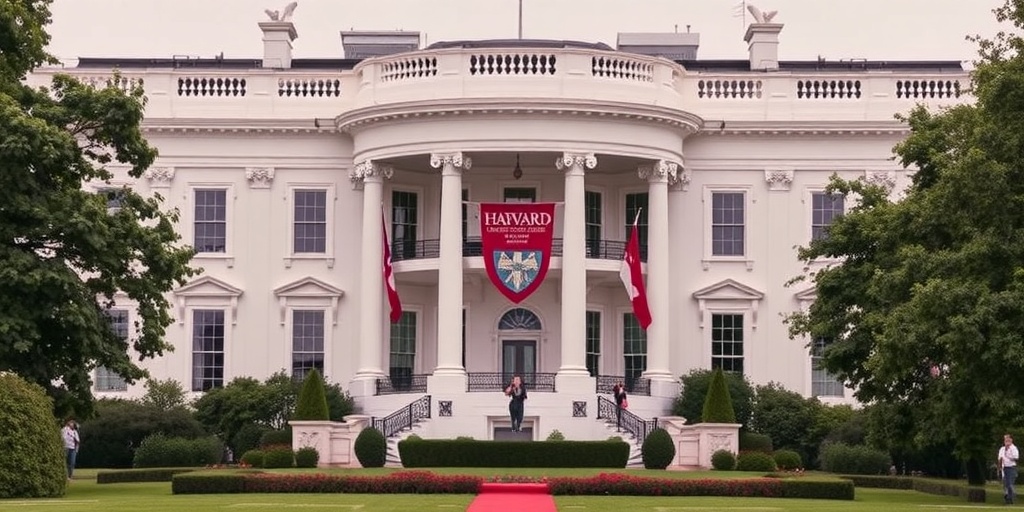Now Reading: Trump Pushes Shutdown, Forcing Workers to Leave Foreign Policy Center
-
01
Trump Pushes Shutdown, Forcing Workers to Leave Foreign Policy Center
Trump Pushes Shutdown, Forcing Workers to Leave Foreign Policy Center
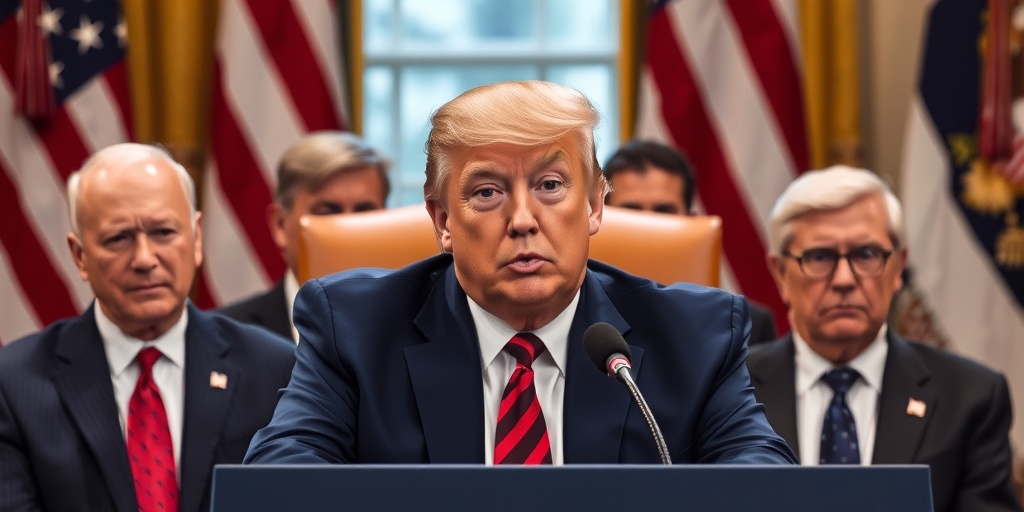
Major Restructuring at the Wilson Center Under Musk’s Direction
In a surprising turn of events on Thursday, nearly all employees of the Wilson Center—a well-known nonpartisan foreign policy think tank located in Washington, D.C.—were placed on leave and barred from accessing their work email accounts. This decision comes as part of moves led by Elon Musk’s team, which has been instrumental in reorganizing various institutions under the current administration.
Approximately 130 employees received notifications instructing them not to report to the office after the close of business on that day. According to an email reviewed by The New York Times and individuals familiar with the situation, while these staff members will receive compensation during their leave, they are expected to be terminated soon, mirroring similar actions taken at other entities recently dismantled by Musk’s operatives.
Only a handful of positions will remain intact at the Wilson Center, with only five employees slated to retain their jobs: a president, two federal employees, and two researchers holding fellowships. These positions are required under the center’s congressional charter, which mandates certain staffing levels. The reductions align with an executive order that was enacted by President Trump earlier this year.
In an unexpected move, the center has announced that private donations would be returned to their respective donors. However, the fate of the center’s significant endowment remains uncertain. During the chaotic scenes on Thursday, numerous employees were seen departing the Ronald Reagan Building—home to multiple government agency offices—carrying boxes filled with personal items, documents, and memorabilia from their time at the center. Among those leaving, one employee was spotted with tears in her eyes as she exited the building, echoing the emotional atmosphere in the aftermath.
The Wilson Center, established in 1968 as a living memorial to the 28th President of the United States, Woodrow Wilson, has typically received around 30 percent of its funding from congressional appropriations, with the remaining funds generated from private donations. Historically, it has served as a critical hub for scholars across various fields of foreign policy. Its library includes important collections, such as that of George F. Kennan, a prominent diplomat well-known for his analysis of the Soviet Union.
The recent upheaval was precipitated when members of Musk’s team entered the Wilson Center’s offices on Monday, initiating the takeover of its operational systems. The following day, president Mark Green resigned under pressure. The White House reportedly played a role in this reshuffling by dismissing the center’s board members in the preceding weeks. Green, a former Republican congressman and ambassador, was allegedly warned he would be terminated if he did not resign.
Musk’s infusion of personnel into various government institutions has led to significant transformations, mirroring actions taken at the United States Agency for International Development (USAID) and other federal bodies. These changes have raised concerns about the future of independent research groups that have historically provided unbiased assessments for policymakers, lawmakers, and public stakeholders.
The center’s role in fostering scholarly dialogue on foreign policy is now clouded by uncertainty. The center’s architectural premises, designated by its charter as part of the Woodrow Wilson Memorial, remain pivotal to its identity and mission. The takeover raises questions regarding how these spaces will be utilized moving forward.
On a broader scale, there are concerns regarding the preservation of valuable historical records and extensive digital archives accumulated over the years. Researchers globally have relied on these materials for various projects, particularly those pertaining to the Cold War era. A source familiar with the operations indicated that extensive documentation from Wilson’s campaign and presidency is also housed within the center’s collections.
The more than 50 fellows affiliated with the center were expected to continue receiving their stipends until the conclusion of their programs, although foreign fellows may face visa cancellations due to the center’s drastic downsizing. Some of these fellows participate in initiatives designed to protect researchers whose work could jeopardize their safety in their countries of origin.
While the tumultuous situation at the Wilson Center continues to develop, a Trump administration insider has confirmed that Natasha Jacome, previously a senior adviser to Mark Green, has been appointed as the center’s new president, suggesting a shift in the leadership’s focus amid ongoing reorganization.
As the Wilson Center confronts these pivotal changes, its future remains uncertain. The impact of these developments will likely resonate within both the academic and policymaking communities as the institution reorients itself under new directives.
Stay Informed With the Latest & Most Important News
Previous Post
Next Post
-
 01New technology breakthrough has everyone talking right now
01New technology breakthrough has everyone talking right now -
 02Unbelievable life hack everyone needs to try today
02Unbelievable life hack everyone needs to try today -
 03Fascinating discovery found buried deep beneath the ocean
03Fascinating discovery found buried deep beneath the ocean -
 04Man invents genius device that solves everyday problems
04Man invents genius device that solves everyday problems -
 05Shocking discovery that changes what we know forever
05Shocking discovery that changes what we know forever -
 06Internet goes wild over celebrity’s unexpected fashion choice
06Internet goes wild over celebrity’s unexpected fashion choice -
 07Rare animal sighting stuns scientists and wildlife lovers
07Rare animal sighting stuns scientists and wildlife lovers














